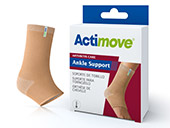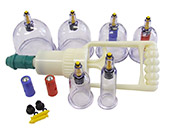Shockwave Therapy
Advanced physiotherapy and rehabilitation solutions have come a long way in recent years, with shockwave therapy emerging as a revolutionary treatment method, offering new avenues for addressing musculoskeletal conditions. This blog aims to help you understand the fundamentals of shockwave therapy and how it can improve the lives of those with certain health conditions, including plantar fasciitis, Achilles tendinitis, tennis elbow, and chronic pain.
What is Shockwave Therapy?
Shockwave therapy, also known as Extracorporeal Shockwave Therapy (ESWT), is a non-invasive medical treatment that utilises sound waves to stimulate healing in various soft tissues and bones via a hand-held device. These high-energy sound waves are delivered to the area, initiating a healing process within the body. The procedure itself takes roughly 5-10 minutes and it’s painless although there may be some mild discomfort. If mild discomfort occurs, the practitioner can adjust the intensity.
How Does Shockwave Therapy Work?
Mechanical Pulses
Shockwaves create a series of mechanical pulsations that penetrate deep into the affected tissue. This mechanical force triggers cellular responses, stimulating the release of growth factors and promoting the formation of new blood vessels (angiogenesis) and cell regeneration.
Promotes Healing
The shockwaves induce microtrauma within the soft tissue, initiating a natural healing response in injured soft tissues. This includes the production of collagen, a key structural protein in connective tissues, promoting soft tissue regeneration and repair.
Pain Relieving
Extracorporeal shockwave therapy has been found to have analgesic (pain-relieving) effects by disrupting pain signals in the affected area. This can provide immediate pain reduction and contribute to improved mobility.
What Are the Benefits of Shockwave Therapy?
Accelerated Healing
Shockwave therapy accelerates the natural healing process by promoting the regeneration of damaged tissues. This makes it particularly effective for conditions involving chronic inflammation, tendon injuries and ligament issues.
Treatment of Chronic Conditions
Shockwave therapy has been a huge success in treating chronic conditions such as plantar fasciitis, Achilles tendonitis and tennis elbow. Shockwave treatment provides a non-surgical option for individuals who may have exhausted traditional treatments without much effect.
Improved Blood Circulation
The mechanical pulsations generated by shockwaves stimulate new blood vessels, increasing blood circulation in the treated area. By stimulating blood flow, it promotes a faster healing process and facilitates the removal of metabolic waste products.
Non-Invasive and Low-Risk
Unlike surgical interventions, extracorporeal shockwave therapy is a non-invasive treatment, minimising the risks associated with surgery. It offers a safe and effective alternative for those seeking relief from musculoskeletal conditions without undergoing invasive procedures.
Long-lasting Pain Relief
Shockwave treatment doesn't just address symptoms; it targets the underlying causes of pain and dysfunction. This often results in long-lasting pain relief, providing patients with sustained improvements in their quality of life.
Reduced Dependency on Medications
With its potential to alleviate pain and promote healing, shockwave therapy can reduce the need for pain reducing medications. This is especially valuable for individuals looking for drug-free alternatives or those with concerns about the side effects of long-term medication use. Statistics show over 90 percent of patients experience a reduction in their pain.
In patients that suffer from plantar fasciitis and heel pain related problems, pain reduction is remarkable; 39 studies showed a success rate of 94% in Plantar Fasciitis. The overall success rates for all indications ranges between 60% to 80% depending on the conditions treated.
What Conditions Can Shockwave Therapy Treat?
- Achilles tendon and heel pain
- Plantar Fasciitis (heel spur)
- Achilles Tendonitis
- Back pain
- Dorsalgia (chronic back pain)
- Lumbalgia (lumbago)
- Shoulder and neck pain
- Periarticular shoulder pain
- Chronic neck and shoulder pain
- Tendinosis Calcarea (calcific tendinitis)
- Elbow and arm pain
- Forearm muscles
- Epicondylitis (tennis or golfer elbow)
- Knee and shin pain
- Patellar Tendonitis (Jumper’s / runners Knee)
- Tibial edge syndrome (shin splints)
- Pseudarthrosis
- Non healing bones
Are There Any Side Effects to Shockwave Therapy?
Shockwave therapy provides highly effective results with minimal associated risks. Although infrequent, some individuals may experience mild side effects such as temporary soreness, bruising, swelling or tingling at the application site post-treatment. Typically, these side effects subside within a day or two.
However, individuals with neuropathy (nerve damage) should refrain from shockwave therapy, as it may exacerbate the condition. Shockwave treatment is also not suitable for those with cancer, recent steroid injections or during pregnancy. Additionally, individuals with a history of blood clotting disorders, those on blood-thinning medication, or those with metal pins or plates near the treatment site should seek advice before undergoing shockwave therapy.
To ensure proper application, a fully qualified and experienced practitioner should carry out the shockwave treatment. Seeking guidance from a healthcare professional is advised before opting for shockwave therapy.
Shockwave therapy stands at the forefront of innovative treatments for musculoskeletal conditions, offering a non-invasive treatment that's effective and low risk. Its ability to accelerate healing, provide long-lasting pain relief and treat chronic conditions positions shockwave therapy as a game changer in the field of rehabilitation.
Commonly Asked Questions
Is Shockwave Therapy Clinically Proven?
Shockwave Therapy Machines have undergone clinical validation, gaining recognition from leading orthopaedic hospitals and being adopted by elite professional sports organisations like the English Institute of Sport, UK Athletics, Welsh Rugby Union and numerous Premiere League football clubs.
Is Shockwave Therapy Safe?
Yes. With NICE guidance and FDA approval for a broad range of indications, Shockwave Therapy administered by qualified therapists is a predominantly safe and side-effect-free approach to addressing musculoskeletal conditions and chronic pain.
How Many Sessions are Needed?
Based on research-backed protocols, it is advised that most conditions typically need 3-6 sessions of shockwave therapy. In cases of longstanding conditions, additional sessions may be required. Optimal benefits are achieved when the sessions are spaced out on a weekly basis. A full assessment is required to determine the number of treatments.
How Long Does a Session Last?
The treatment lasts between 10-15 minutes.
When Can Shockwave Therapy Be Used?
- When surgery is not an option
- When pain relief and injections no longer work
- When the condition presented is suitable for shockwave therapy
- When no contraindications are present
- Contraindications – When shockwave therapy can’t be used:
- Pregnant women or those trying to conceive
- Application over open growth plates (not suitable for under 18 years)
- Over metal pins or plates
- Malignant tumours
- Nerve or circulation disorders
- Infection
- If you are taking anticoagulants or have a blood disorder
What Distinguishes Radial Shockwave from Focused Shockwave Therapy?
Shockwaves come in two forms: focused and radial. Focused shockwaves are concentrated sound waves directed deeper into the body, reaching approximately 5cm, where they attain their maximum energy. They are utilised for treating deep trigger points or specific areas. On the other hand, radial shockwaves radiate outward and do not penetrate as deeply into the body. Radial shockwave therapy is applied to larger surface areas or broader regions of the body. The choice between the two is determined by your condition, and some therapists may recommend a combination of both.
Shockwave Medical Devices

BTL-6000 Focus Shockwave Therapy
An effective alternative to surgery
Clinically proven and an effective non-surgical treatment, treating both the cause and symptoms of chronic pain.
Ideal for fast pain relief and the restoration of mobility, the therapy enhances soft tissue regeneration, eliminates calcifications, relaxes muscles and trigger points, and stimulates the healing of non-union fractures.
BTL-6000 Focus Shockwave technology offers the highest lifespan with constant shock intensity and a perfect balance between high Energy Flux Density and optimal Focal Zone size. It has the highest frequency range on the market for a wide spectrum of indications.
BTL-6000 Radial Shockwave Therapy Elite

An effective alternative to surgery
The BTL-6000 Radial Shockwave Therapy Elite is the most powerful portable radial shockwave with 6 Bars and 22 Hz that can address any chronic pathology.
Designed with the therapist in mind your hands will love the ultralight applicator with shock-absorbing material for your effortless experience.
With a simplified and easy-to-use touchscreen, this radial shockwave unit provides intelligent settings of therapy parameters with visual indicators ensuring you have a smooth therapy workflow.
If you are interested in receiving Shockwave Therapy treatment, please contact the medical experts at BTL who will be happy to assist you.
Sources and References
Physio Resolutions - Shockwave Therapy
Physio Elite - Shockwave Therapy the Safe Treatment Option
Go Physiotherapy - Shockwave Therapy FAQS



Did you find this article useful?
Why not share this with a colleague, patient or friend?